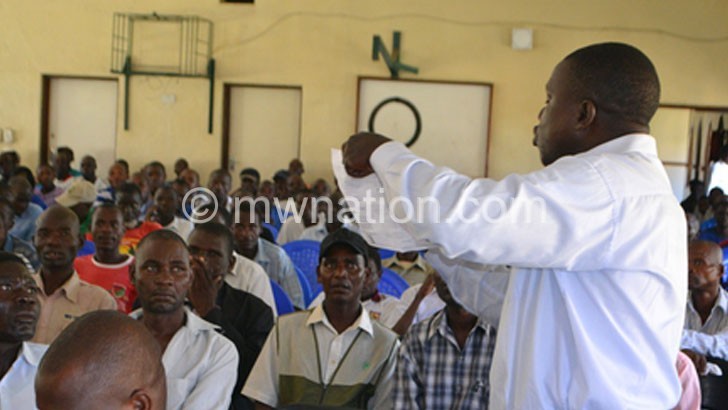Microfinance firms rue regulatory cost
Malawi Microfinance Network (Mamn), a grouping of 52 registered microfinance institutions (MFIs), has blamed the cost of regulatory compliance for affecting the sector’s growth and the financial inclusion agenda.
Mamn chairperson Courie Mulder said in an interview the regulatory environment has reached a stage where the balance between ensuring best practices and cost of business is a negative variance, observing that some regulatory practices seem to infringe on a free and fair economy.

He said this on the back of a weekly report by Alliance Capital Limited which indicated that MFIs can be a critical element of an effective poverty reduction strategy for their smallness of the loan, advances or savings, absence of asset-based collateral and the simplicity of operations.
Said Mulder: “Regulation is an essential element of ensuring the protection of clients in the industry. It is in this spirit that Mamn promotes compliance to laws and regulations and the adoption of international best practices and guidelines.
“It is also important to note that the microfinance sector in Malawi is in its nascent stage [compared with other jurisdictions], but with huge growth potential.”
He said government’s non-remittance of payroll deductions poses a challenge, resulting in reduced loan disbursements, failure to meet the working capital requirements and other liabilities as they fall due, thereby threatening the going concern status of the institutions.
But in the report, the investment and portfolio management firm said latent capacity of the poor for entrepreneurship could be enhanced through the provision of microfinance services.
Reads the report in part: “Improved access and efficient provision of savings, credit and insurance facilities in particular can enable the poor to smoothen their consumption, manage their risks better, build their assets gradually, develop their micro enterprises, enhance their income earning capacity and enjoy an improved quality of life.”
Mamn has 337 000 members and a gross loan portfolio of K32 billion, according to Mulder.
The country’s microfinance sector continues to remain strong in terms of profit, capital and liquidity despite being hit by non-performing loans (NPLs), according to the Reserve Bank of Malawi (RBM) 2017 Financial Stability Report.
In absolute terms, NPLs for the sector stood at K414.9 million as at the end of September 2017 from K621 million in March 2017 while NPLs to gross loans for non-deposit taking sector increased to 16.5 percent from 12.1 percent during the same period due to decrease in gross loans.
But despite the rising NPLs, the sector recorded sufficient capital and an improvement in profitability of K475.3 million in September 2017.





